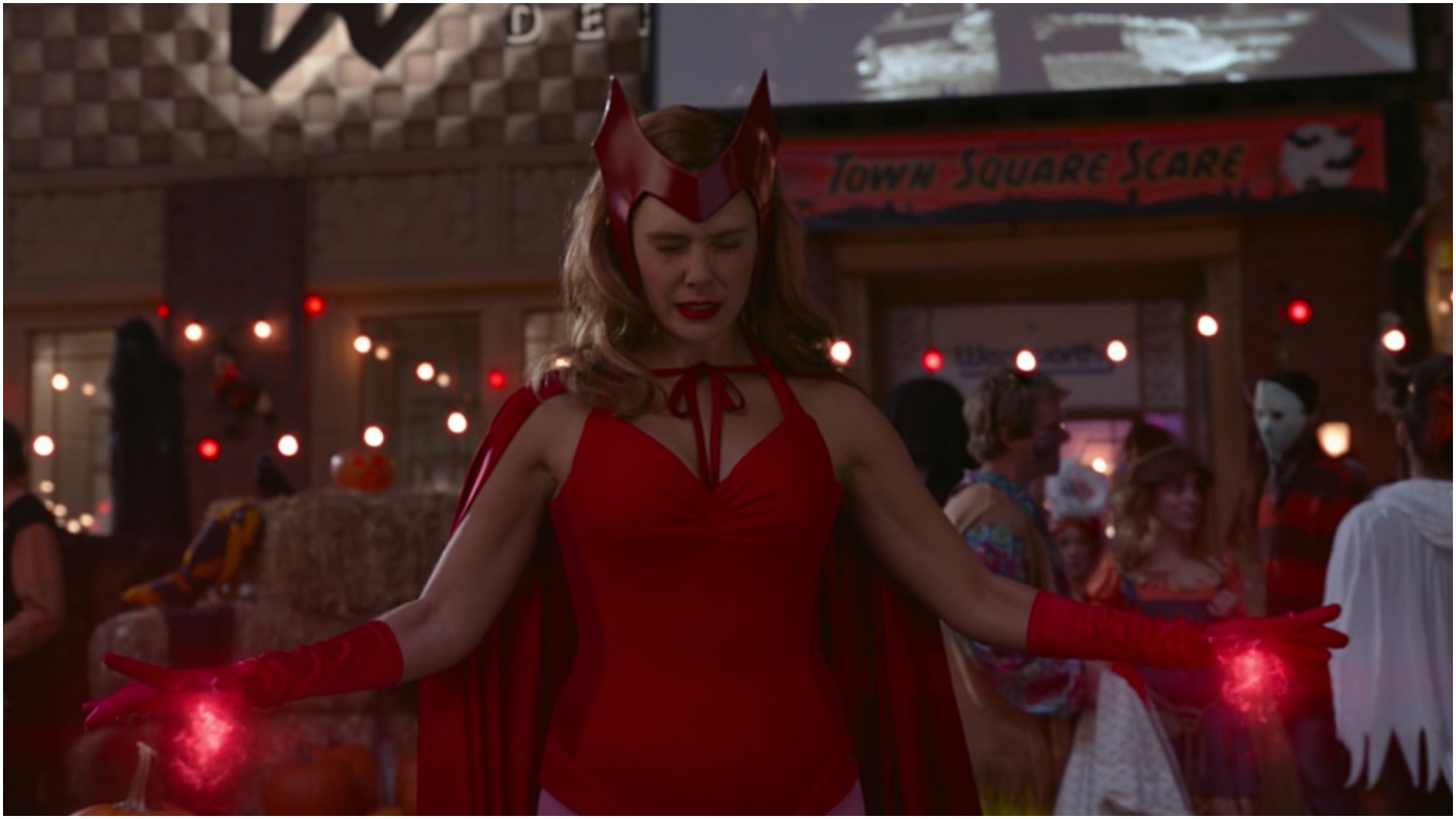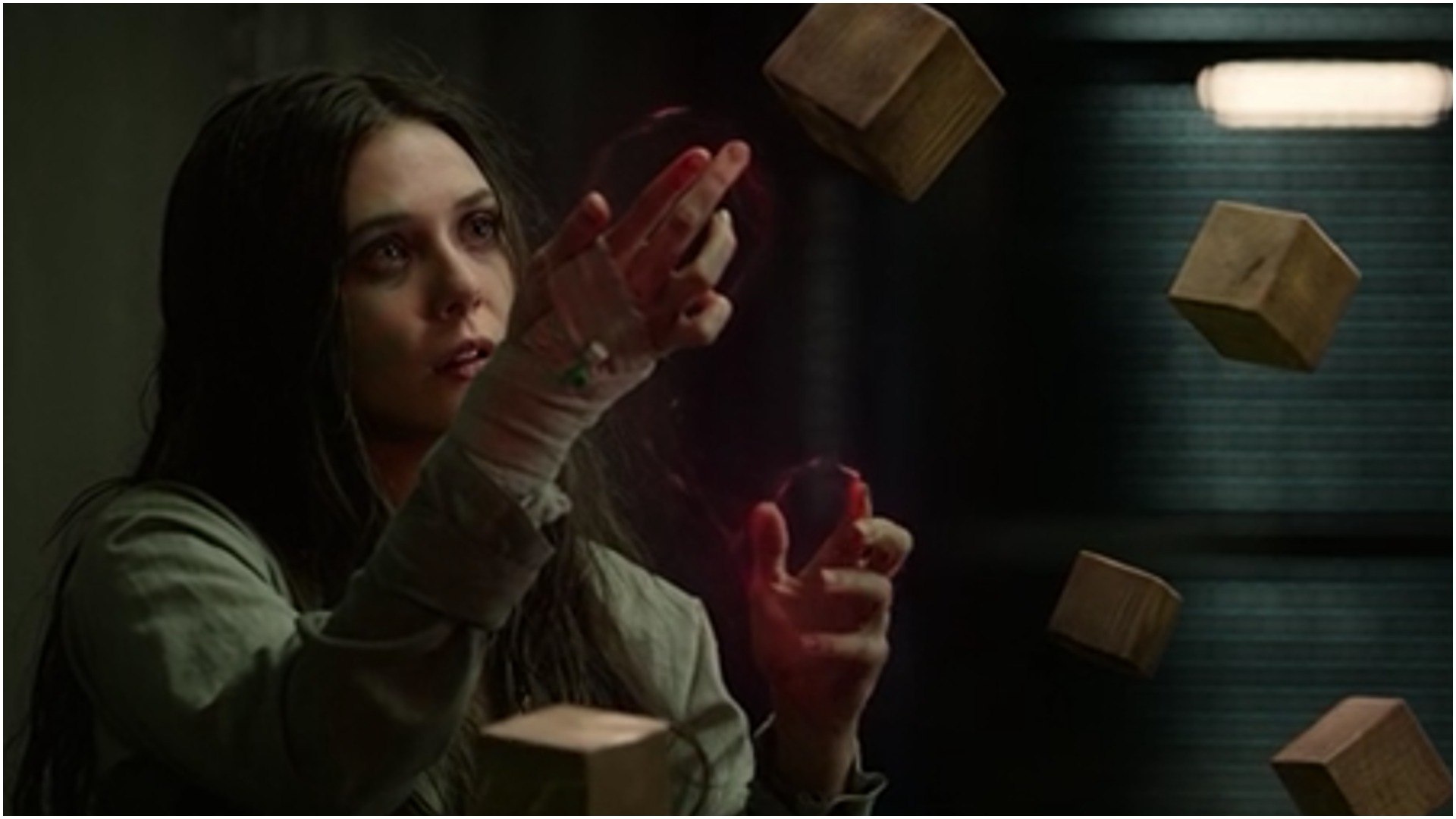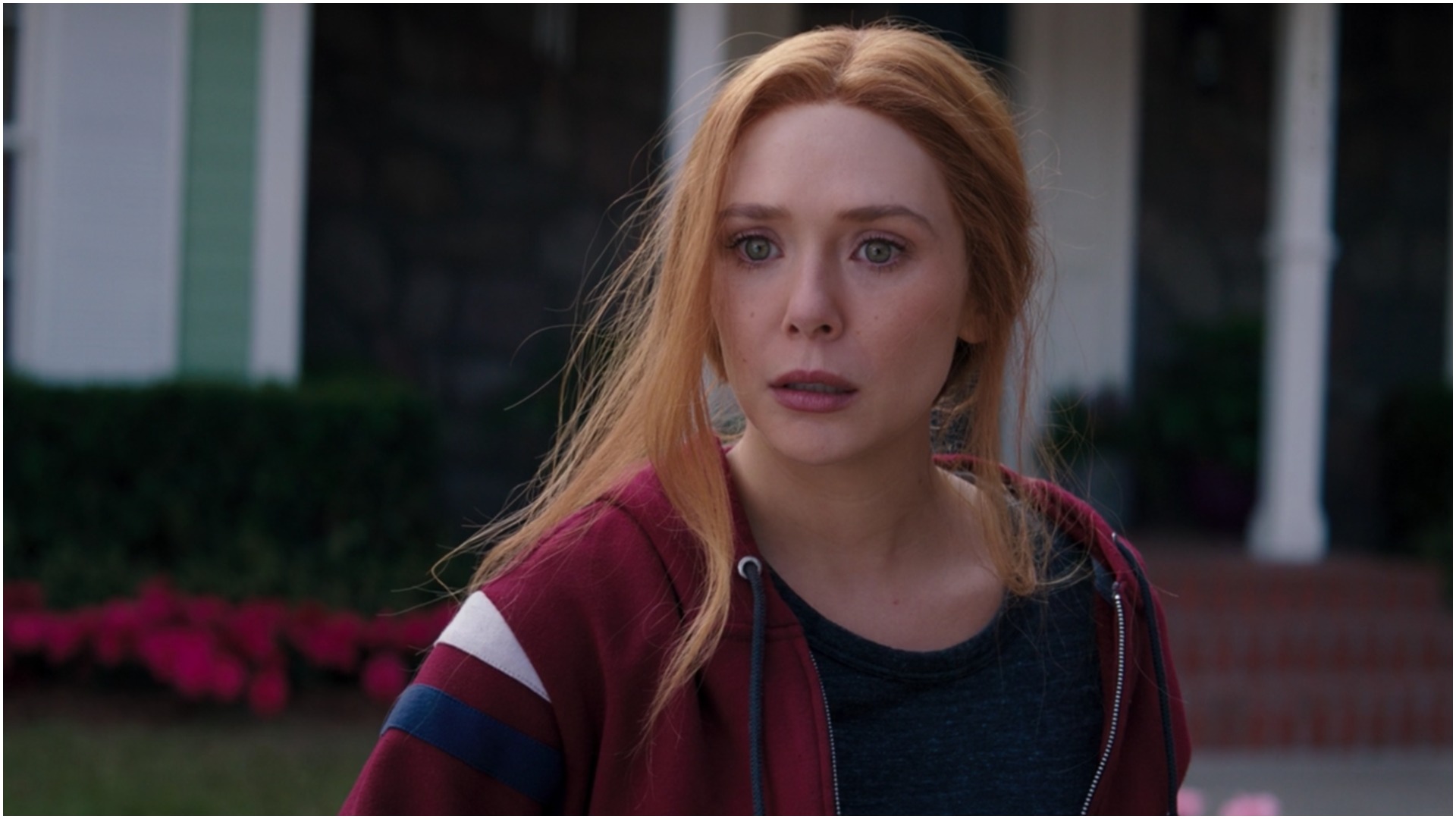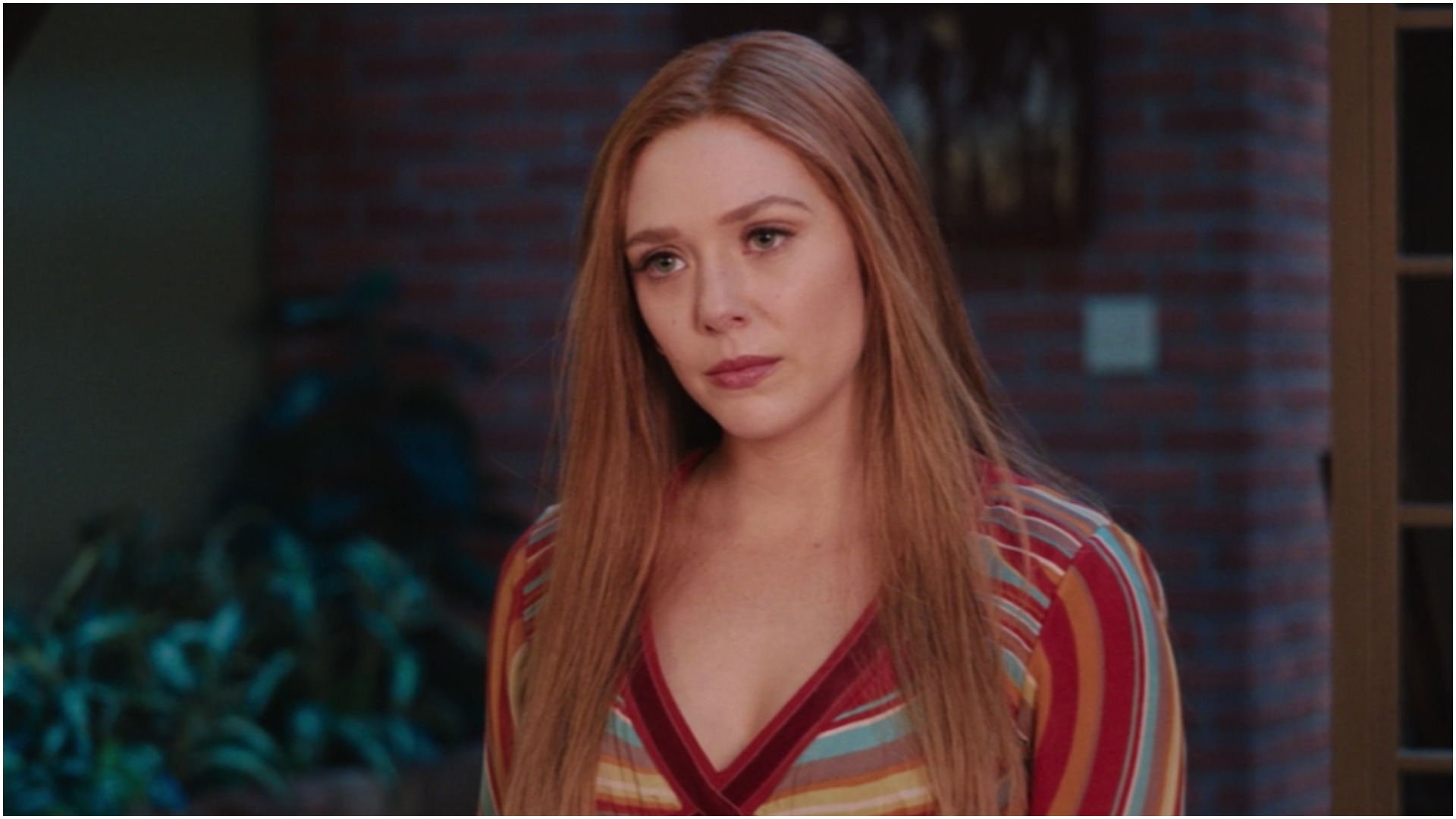How WandaVision avoids a major, harmful, and all-too-common trope
Wanda might be going down a dark path, but the show manages to stop her from being simply another powerful-woman-gone-mad

Wanda Maximoff has the potential to become Marvel's strongest villain. We've seen how terrifying her powers can be in WandaVision, with Scarlet Witch trapping an entire town in her new, creepy reality. However, the Marvel show has successfully avoided a major, harmful trope about powerful women in fiction.
WandaVision is not the first time Wanda has been a danger in the MCU. Her first appearance in the mid-credits scene of The Winter Soldier saw her gently, vacantly floating children's building blocks with her powers – until she violently broke them. In Civil War, Tony Stark grouped her with "weapons of mass destruction" as a justification for putting her under house arrest, and then she ended up in super-prison clad in a straitjacket. In other words, Wanda was a woman whose powers were so strong that they damaged her state of mind, and could potentially lead to the not-mutant losing control.

This is a common trope for female characters. The most famous example in recent years is Daenerys Targaryen in Game of Thrones. The fan-favorite character quickly became the "Mad Queen" after a series of heartbreaks, including the death of one of her dragons, and ended up razing a city to the ground, slaughtering countless innocent people. When we see the Mother of Dragons just before the massacre, her mental state is clearly fragile: she sobs as the bells of surrender ring. So why did she turn her considerable firepower on civilians when she had been so passionate about protecting the weak before? It's not clear – unless the answer is simply "because she's upset." Game of Thrones showed us that a woman with that much power is too dangerous to be trusted and that, eventually, they'll have to die.
Daenerys isn't the only fictional woman to suffer the same treatment. There's Jean Grey, who gained such tremendous power in X-Men: Dark Phoenix that her mental state was affected, and she became a danger to all – and eventually sacrificed herself. TV Tropes even has a whole page for what they call the Unstable Powered Woman, including Daenerys, Jean, and Wanda, as well as characters like Stephen King's Carrie and Buffy the Vampire Slayer's Willow.

Wanda could be headed down the same road as she deals with her overwhelming grief. The head of SWORD already believes that she needs to die, firing a rocket at her in episode 5. Likewise, Marvel comics' Avengers Disassembled and House of M storylines saw Wanda suffer a mental break and unleash her powers to devastating effects. However, WandaVision showrunner Jac Schaeffer has acknowledged this trope and is attempting to skirt it entirely. "It was extremely important to me that we not do the lazy thing of having a superpower lady who can't handle her powers and goes crazy," she told our sister publication Total Film in a recent interview.

WandaVision's real villain reveals themselves – but there's a lot more to it
We know why Wanda has checked out of reality, and it's not because of her powers: she lost her twin Pietro, then lost Vision twice over. Daenerys Targaryen likewise lost loved ones, yet the difference between the two characters is stark: Wanda has been given space to actually be sad on screen without her mind becoming collateral damage. When Monica Rambeau mentions Pietro, Wanda became dangerous for the first time in the series. It was the first reference to her twin in the MCU since his untimely death in Age of Ultron, and Wanda blasted Monica clear from Westview in her simmering fury. But, as Monica points out later, Wanda protected her from major injury – and later, she couldn't bring herself to seriously attack Monica after the SWORD agent again entered Westview uninvited.

We can again see Wanda working through her trauma when she discusses the death of Sparky the puppy with her twin sons. She warns them not to run from their feelings, but couldn't do that herself, even breaking into a SWORD facility to steal Vision's remains. But instead of lashing out, she has turned inwards, creating an idyllic American suburb.
Bringing all the latest movie news, features, and reviews to your inbox
Wanda has been given space to actually be sad on screen without her mind becoming collateral damage
The revelation that Agnes/Agatha Harkness is actually manipulating Wanda shows that the writers are going to avoid putting the blame on Scarlet Witch. Plus, Monica has been tirelessly defending Wanda, emphasizing that she was an Avenger. Wanda won't become the Mad Witch and her good deeds will not be forgotten.
WandaVision has given Wanda Maximoff far more depth than any of the movies ever did. By not shying away from her trauma, and allowing Wanda to feel that emotional weight without breaking under it, the show deftly avoids a toxic trope that's all too prevalent in pop culture. No matter how powerful Wanda becomes, she's never just a weapon of mass destruction about to blow. Things aren't so simple in Westview.
WandaVision drops a new episode every Friday on Disney Plus. While you wait for more, check out everything we know about Marvel Phase 4 so far.

I'm the Deputy Entertainment Editor here at GamesRadar+, covering all things film and TV for the site's Total Film and SFX sections. I previously worked on the Disney magazines team at Immediate Media, and also wrote on the CBeebies, MEGA!, and Star Wars Galaxy titles after graduating with a BA in English.


